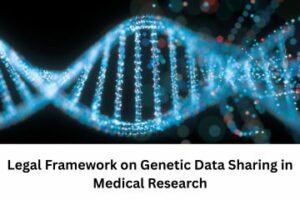Issues related to Migrants, Refugees, displaced persons & differently-abled persons
Introduction
Migrants, refugees, displaced persons and differently-abled persons are some of the most vulnerable groups in society. They face a wide range of issues, including discrimination, lack of access to education, healthcare, and employment, and difficulties in accessing justice. Governments and civil society organizations have a responsibility to address these issues and ensure that the rights of these vulnerable groups are protected. In this article, we will discuss the various issues faced by migrants, refugees, displaced persons, and differently-abled persons, as well as the relevant laws and policies that aim to address these issues.
Migrants
Migrants are individuals who move from one place to another, either within their country or across borders, in search of better economic opportunities, education, or a safer and more secure environment. Migrants face a range of challenges, including discrimination, exploitation, and lack of access to basic services such as healthcare, education, and housing. In many cases, they are also at risk of violence, abuse, and human trafficking.
One of the major issues faced by migrants is the lack of legal protection. Many migrants are undocumented, which makes them vulnerable to exploitation and abuse. They may also face discrimination and xenophobia in their host countries, which can prevent them from accessing basic services such as healthcare and education.
The International Convention on the Protection of the Rights of All Migrant Workers and Members of Their Families, adopted by the United Nations General Assembly in 1990, provides a framework for the protection of the rights of migrants. The Convention defines a migrant worker as “a person who is to be engaged, is engaged or has been engaged in a remunerated activity in a State of which he or she is not a national.” The Convention recognizes the right of migrants to equal treatment with nationals of the host country, the right to work, the right to social security, and the right to health care, among other rights.
Refugees
Refugees are individuals who have fled their homes due to persecution, conflict, or violence, and who are unable or unwilling to return due to fear of persecution. Refugees face a range of issues, including lack of access to basic services such as healthcare, education, and housing, as well as discrimination and xenophobia in their host countries.
The 1951 Convention Relating to the Status of Refugees and its 1967 Protocol provide the legal framework for the protection of the rights of refugees. The Convention defines a refugee as “a person who owing to a well-founded fear of being persecuted for reasons of race, religion, nationality, membership of a particular social group, or political opinion, is outside the country of his nationality and is unable or, owing to such fear, is unwilling to avail himself of the protection of that country.”
The Convention recognizes the right of refugees to receive protection and assistance, including the right to work, education, and access to basic services such as healthcare and housing. The Convention also prohibits the expulsion or return of refugees to countries where their lives or freedom would be at risk.
Displaced persons
The individuals who have been forced to flee their homes due to conflict, violence, or natural disasters, but who remain within their own country. Displaced persons face a range of issues, including lack of access to basic services such as healthcare, education, and housing, as well as discrimination and violence.
The Guiding Principles on Internal Displacement, adopted by the United Nations General Assembly in 1998, provide a framework for the protection of the rights of internally displaced persons. The Guiding Principles recognize the right of internally displaced persons to receive protection and assistance, including the right to work, education, and access to basic services such as healthcare and housing.
Protection of Rights of Persons with Disabilities Act, 2016
The Protection of Rights of Persons with Disabilities Act, 2016 provides for the protection of the rights and interests of persons with disabilities. It ensures their full and equal participation in all aspects of society, including education, employment, and social life. The act also recognizes the right of persons with disabilities to live independently, access justice, and receive appropriate healthcare services.
International and National Laws
Apart from the above-mentioned Acts, there are various international and national laws that address the issues of migrants, refugees, displaced persons, and differently-abled persons. Some of the important international laws are the Universal Declaration of Human Rights, International Covenant on Civil and Political Rights, International Covenant on Economic, Social and Cultural Rights, and Convention on the Rights of Persons with Disabilities. In India, the Constitution of India, National Policy for the Empowerment of Persons with Disabilities, and the National Policy on Disaster Management also provide guidelines for the protection and welfare of these sections of the society.
Conclusion:
Migrants, refugees, displaced persons, and differently-abled persons are among the most vulnerable sections of society, often deprived of basic rights and privileges. The issues faced by them require a multi-dimensional approach that involves not only the government but also civil society organizations, international organizations, and individuals. The legal framework in India has evolved over the years to address the issues faced by these sections of society. However, there is still a long way to go in terms of ensuring that their rights and interests are fully protected and they are able to live a life of dignity and respect. It is necessary to create awareness and promote a more inclusive and empathetic approach towards these sections of society to ensure their well-being and progress.
Keywords: Migrants, refugees, displaced persons, differently-abled persons, issues, laws, challenges, solutions.




